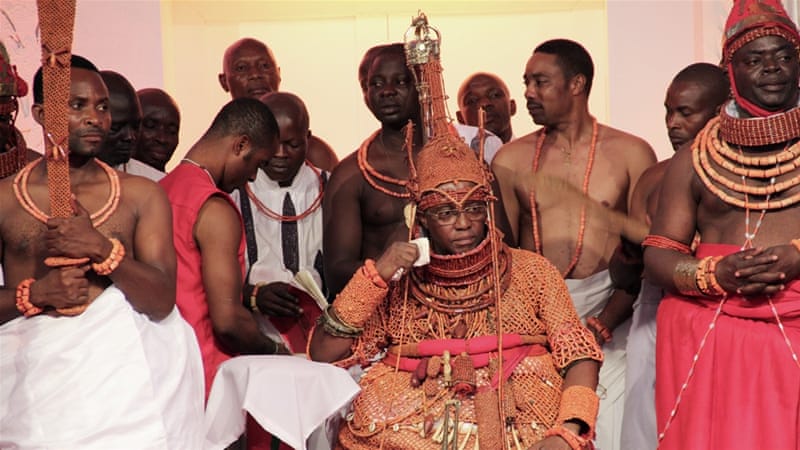Bini’s customary arbitration and justice delivery system
4 min read
In pre-colonial societies, each ethnic nationality had an established mode of conflict resolution vested in the monarch, his chiefs and council of elders with the monarch as the superintending authority being the chief-in-council. Litigations were swift, justice delivered and comparatively handled with dispatch.
The chiefs as epitome of justice were reverend as truth and fairness formed part of the proceedings. Equity in local jurisprudence resonates in the community square; judgments delivered and clothed with the wisdom of King Solomon. However there were exceptions as elements of judicial fraud could not be completely eradicated.
With colonialism, the native judicial system was invaded, whittled down and subjugated. English Courts and laws were foisted on the natives. Subsequent legislations enthroned the “civilized” English Courts, which with the exaltation of the local interpreter silenced the native Courts. This is no doubt did not go down well with the natives without opposition from the well established traditional activists who saw the British incursion and intervention as an affront from territorial expansionists that should be resisted. Notable among them were Oba Ovoramwen of the great Bini Kingdom and King Jaja of Opobo amongst others.
In the post colonial era, successive Nigerian governments have come to accept the relevance of traditional rulers. Viewed from this perspective, traditional rulers who held opinions distinct from those in government had been axed by way of dethronement, denial of certain privileges etc. The military era promoted this ill-feeling and humiliation of traditional rulers, same is applicable even in our democracy.
It is well accepted that one of the many African modes of setting disputes is to refer the dispute to the family head or elders of the community for a compromised solution based upon the subsequent acceptance by both parties of the suggested awards, which becomes binding only after such signification of its acceptances, and from each either party is free to resile at any stage of the proceedings. This is a common method of settling disputes in all indigenous African communities. In most cases, certain invocations, incantations are made to make parties under oath maintain the part of truth.
The very essence of arbitration is not only alternative dispute resolution, but the promotion of the public policy to the effect that it is in the interest of the community that there should be an end to disputes and litigations of any manner. It is on this score that the Bini Kingdom has exuded her magnificence when the present monarch Oba Eware II in continuation of our esteemed Royal Majesty Oba Erediauwa’s order of the Bini society given strength to the Binis Customary Arbitration Panel, which other communities would do well to imbibe for the peace and tranquility of various communities in our country. This may be an appropriate stage to state loud and clear that the interpretation of law as prescribed under S.45 of the Constitution of the Federal Republic of Nigeria (1999 as amended) cannot be restricted only to status of parliament. It would include the rules and regulations guiding communities which assist them in the maintenance of peace and tranquility. This will certainly minimize those anti-social behaviours which spill over to outside specific boundaries creating a breakdown of law and order overloading the security agencies beyond their scope of duty, stretching and overcrowding the regular Courts in the dispensation of justice delivery.
To underscore the uniqueness of customary arbitration as an essential tool of justice delivery, the Appeal Court in Osagie v Obazee (2014) All FWLR (Pt. 750) 1344 @ 1349-50 R.3 per Lokulo-Sodipe JCA defined customary arbitration as “an arbitration in dispute founded on the voluntary submission of the parties to the decision of the arbitrators who are either chiefs or elders of their community, and the agreement to be bound by such decision or freedom to resile where unfavourable; same is defined by the Blacks’ Law Dictionary as a method of dispute resolution involving one or more neutral third parties who are usually agreed to by the disputing parties and decision is binding. See Utong v Utong (2014) All FWLR (Pt. 746) 447 @ 452 R.8, Blacks’ Law Dictionary 9th Edition @ 119.
Determined to stem the scourge of helplessness by developers over land acquisition and boundary dispute between communities, His Royal Majesty has made the institution of customary arbitration an essential instrument of social engineering by making parties to a dispute come before him with cogent and compelling reasons why the subject matter be resolved in their favour.
Its no gainsaying that the mammoth crowd that gathers at the Palace weekly for justice delivery on issues bothering on land dispute between communities, communities and individuals, individuals and individuals, tussles over Odionwereship among others are hallmark of the implicit confidence traditionally vested on the Palace by the subjects including non-natives.
It is gratifying to note that lands are being restored to their original owners and many indigent litigants withdrawing their cases from the regular Courts to the Palace Court. This is a contribution to justice delivery by traditional institutions and the Binis have shown the lead; others are enjoined to give life to theirs with dispatch.
Omote is a Benin based legal practitioner

